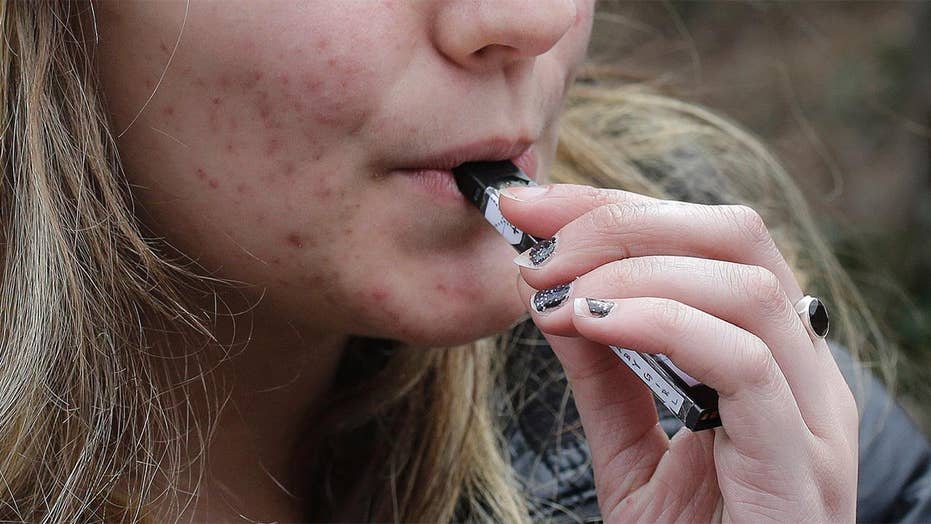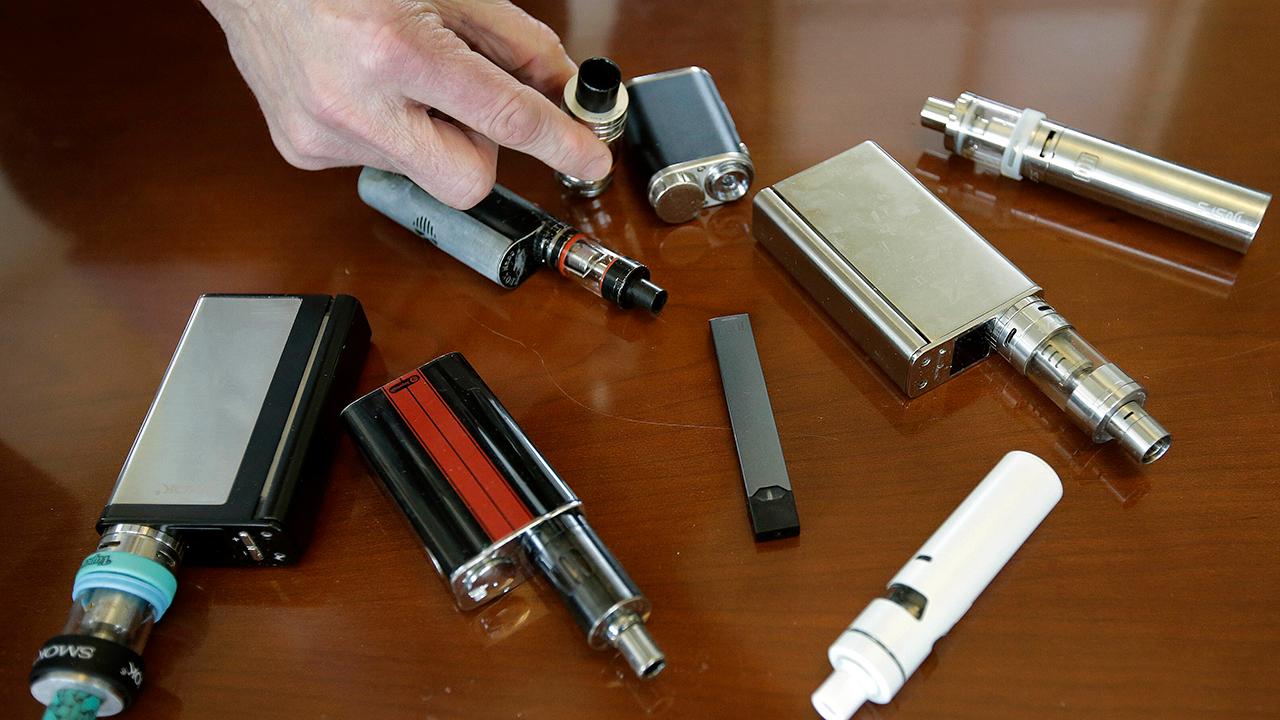
Study: Many teens don’t realize that they are vaping nicotine
Addiction experts warn this potential lack of understanding might leave young people saddled with the financial burden and health impacts of nicotine addiction.
A Florida teen who developed a hole in his right lung that later caused it to collapse blames his recent health scare on vaping.
Chance Ammirata, 18, told CBS This Morning he required surgery to repair the hole, which he claims developed after he began using Juul — a popular e-cigarette device — when he was 16.
“I couldn’t breathe,” he told the outlet.
Earlier this month, Ammirata took to social media to detail his experience, saying it made him realize “enough is enough” and that “nicotine is rotting our brains and destroying our bodies."
“It overcame me with emotions,” he added.
The teen says he now plans to raise awareness and “fight to help not only ourselves but the ones we love to put down the nicotine.”
“This epidemic has taken enough. We don’t need more evidence telling us just how bad it is. How many more kids are going to have to get hospitalized for us to stop?" he wrote in the Aug. 6 post.
The teen’s claims come as officials with the Utah Department of Health announced Monday that at least five people have been hospitalized with “serious breathing problems” after they reported vaping or using “other inhalation drugs.”
The patients reported similar symptoms — shortness of breath, fatigue, chest pain and cough — which worsened over a series of days or weeks before they were hospitalized.
“All patients were hospitalized, with some needing assistance to breathe. While patients have improved with treatment, it is unknown whether there will be long-term health effects,” the Utah Department of Health said in a statement.
The cases were not unlike those reported in other states, namely those in Wisconsin, Illinois, and Minnesota, which have seen a high number of lung illnesses primarily among teenagers. The cases are all possibly tied to vaping.
POSSIBLE VAPING, SEVERE LUNG ILLNESS LINK SPARKS CDC PROBE
In response, the Centers for Disease Control and Prevention (CDC) announced over the weekend it is investigating “a cluster of pulmonary illnesses linked to e-cigarette product use, or ‘vaping’ primarily among adolescents and young adults.”
“Additional states have alerted CDC to possible (not confirmed) cases and investigations into these cases are ongoing,” the CDC added, noting there is “no conclusive evidence” that an infectious disease is behind the illnesses.
In total, there have been nearly 94 cases of “severe” illnesses associated with using e-cigarettes. Cases have been reported across 14 states since June 28, and at least 30 were reported in Wisconsin, according to the CDC.
The negative health effects associated with cigarette and cigar use have long been documented, leading to a decline in both among teens in the U.S. in recent years.

In 2018, for example, the CDC reported roughly 1 in 50 – about 1.8 percent – of middle school students said they smoked cigarettes in the past 30 days, down from 4.3 percent in 2011 and a drastic decrease from 36.4 percent in 1997 when rates “peaked after increasing throughout the first half of the 1990s,” according to the American Lung Association.
But the same is not true for e-cigarette use. In 2018, nearly 1 of every 20 middle school students (4.9 percent) reported using electronic cigarettes in the past 30 days. That's an increase from less than 1 percent in 2011.
Last year, the Surgeon General of the United States, Jerome Adams, declared vaping among American teens an “epidemic."
"This is an unprecedented challenge,” Health and Human Services Secretary Alex Azar said in response at the time.
SEIZURES AFTER VAPING? FDA INVESTIGATING 127 REPORTS OF THE NEUROLOGICAL CONDITION FOLLOWING E-CIG USE
The health issues – both short and long term – of e-cigarette use are not well understood, and the U.S. Food and Drug and Administration (FDA) does not require the manufacturers of e-cigarette devices to list all the ingredients in them.
A recent study by Yale University and Duke University found the e-cigarette liquid in Juul devices contains chemicals known as acetals. Acetals, according to the researchers, could cause lung irritation.
Separately, the FDA announced last week it's investigating 127 reports of seizures occurring after vaping.
Source: Read Full Article
